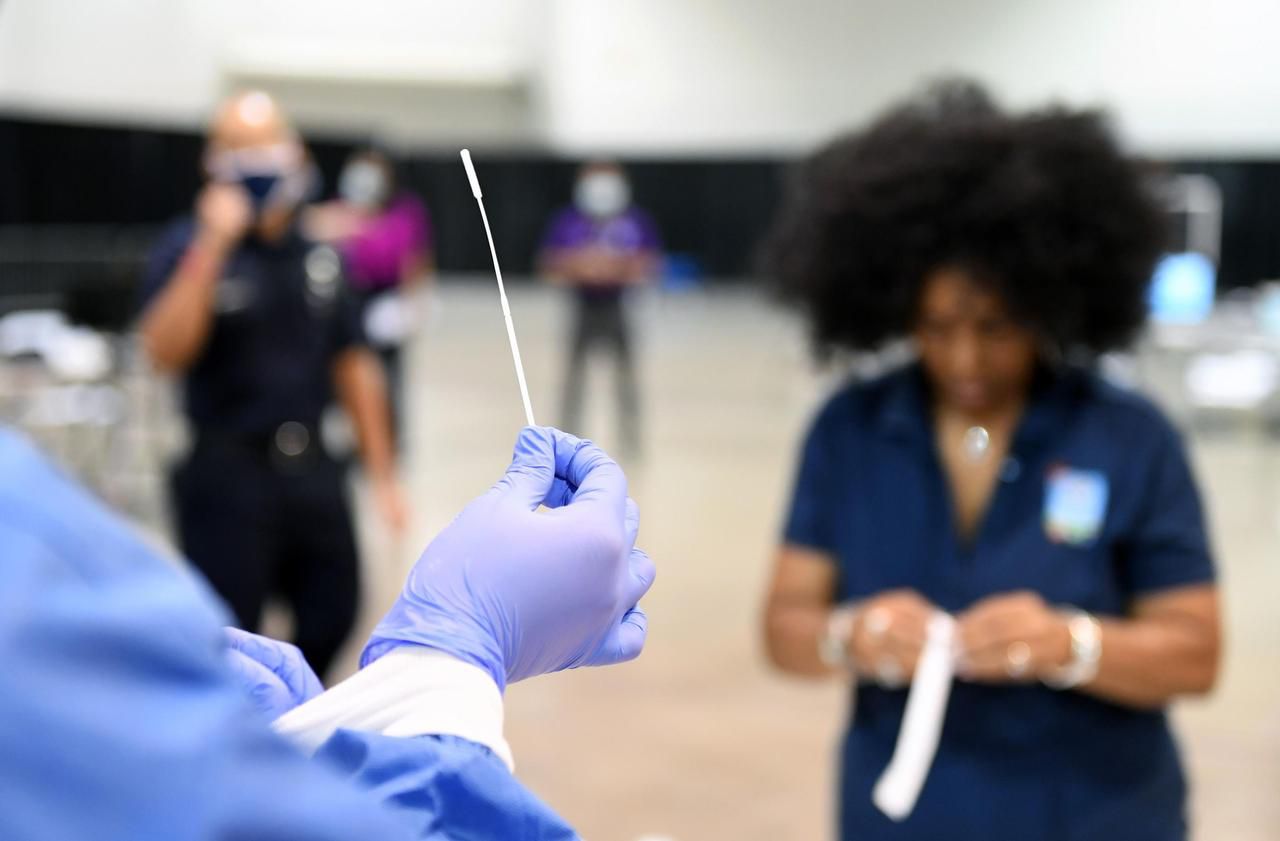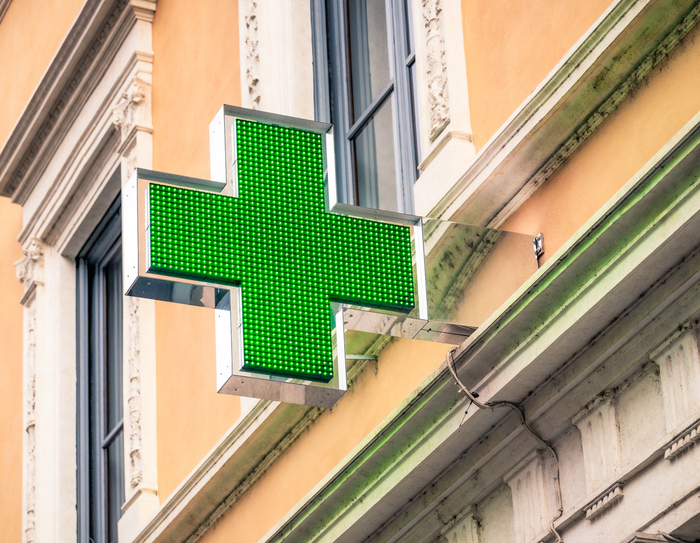Sampling with a swab, analysis, result. For more than five months, the employees of the biology laboratories have known them by heart. The number of diagnoses linked to the coronavirus has taken off and every day rushes hundreds of people to the door of medical laboratories.
Among them, patients with symptoms, contact cases, vacationers who are asked to show a white paw in their country of arrival, or anxious about Covid-19 who simply want to know if they could have contracted it. Depending on the situation, it is sometimes difficult to navigate with all the options available on the market, between prescription tests, those reimbursed or not, nasopharyngeal PCR or serological diagnoses. Le Parisien takes stock of the alternatives available to date.
Virological or serological?
The tests fall into two categories. First, the virological tests, also called RT-PCR or PCR, which allow you to know at the time of the sample if you are infected with Covid-19. These are the most requested, because they lead, in case of positivity, to a fortnight.
There are also serological tests, which determine if you have developed antibodies against the coronavirus and therefore, if you have already been infected in the past. These have no other utility than that of information.
The nasopharyngeal PCR virological test
To date, there is only one way to perform a PCR test in a medical biology laboratory or in a hospital: the nasopharyngeal sample, with this famous swab slipped into a nostril, which confers a brief feeling of discomfort.
What results? This is the most reliable test to determine whether or not a coronavirus infection is in progress in the patient. But the sample must be done at the right time. "The virus must be present in the place where it is sought, details to the Parisian Lionel Barrand, the president of the Union of young medical biologists. If the test is done too early, the first two or three days after contamination, the virus is not yet embedded in the nose and when the test is done too late, it is no longer found because it has migrated into the nose. lungs ”.
Who can do it? Until then, only biologists were authorized to perform this sample in the nose, but a decree of July 24 broadened this authorization to state nurses, as well as, "under certain conditions", to students in the health profession, to caregivers, firefighters and some rescuers.
What timeframe for the results? The government has made a commitment that the patient will generally receive their results "within 24 hours". Depending on the laboratory configuration and its attendance, this may be slightly longer.
Newsletter - Most of the news
Every morning, the news seen by Le ParisienI'm registering
Your email address is collected by Le Parisien to enable you to receive our news and commercial offers. Learn more
On prescription? Paying? PCR tests no longer require a doctor's prescription since the end of July. It is no longer necessary to present symptoms or have been a contact case. Anyone can therefore come to a medical biology laboratory and request a sample. However, it is recommended to make an appointment and the delays can be very long. These tests are "fully supported by health insurance", responds on its website the government.
The saliva test
Another type of virological test, also PCR, exists, but it has not yet been validated by health authorities. This device called Easycov and developed by a start-up in Montpellier, is done this time thanks to a sample on the tongue that the patient can take himself and is therefore less intrusive to the nasopharyngeal.
What results? "We are waiting to see what it will give, but the results are not very convincing and uncertainties remain about its performance", supports the biologist Lionel Barraud.
What timeframe for the results? If validated, this device should save precious time in laboratories. According to the company that deploys these tests, less than an hour after analyzing the sample, a colorimetric result can indicate the presence or not of Covid-19.
On prescription? Paying? For the moment, this information is not available, since the test has not yet been validated and deployed in France.
Serological tests
This is a blood sample, which can be done either in the laboratory with a blood test (Elisa) and contact with a reagent, or in a pharmacy with a test called Trod (rapid diagnostic orientation tests) , which involves taking a drop of blood from your fingertip and putting it into a device similar to a pregnancy test. These tests do not have the same value as PCRs, since they only inform the patient of a possible past infection. Some therefore do it out of pure curiosity, others are forced to provide the results obtained to the airlines, before a trip abroad.
What results? Scientists still lack data on how long antibodies are in the body. According to recent studies, contamination can be detected up to 40 days after it has occurred, sometimes longer. "In subjects who have had an asymptomatic infection, the appearance of antibodies is still poorly characterized today," notes the government. Clearly, it is not because a serological test is negative that the patient has not, in the past, contracted the coronavirus. "The blood tests are more reliable than the Trods, because more blood is taken", also insists Lionel Barrand, of the Union of young medical biologists, who calls for caution regarding the latter, which, he recalls, must be confirmed in the laboratory.
What timeframe? The Trod test, performed by a pharmacist, is almost instantaneous. The results can be available in about ten minutes. In the laboratory, with a blood test, it is generally necessary to wait 24 hours, sometimes less, before having the results in hand.
With or without a prescription? Anyone can benefit from these tests since some are dispensed without a prescription, on request. Doctors can also order a blood test to supplement the diagnosis. "In the event that a test is carried out (without a prescription), it is advisable to consult a doctor in order to avoid any misinterpretation of the results," recommends the Ministry of Health.
Paid or not? The Trod costs around fifteen euros in pharmacies. In the laboratory, blood samples without a prescription are not reimbursed and cost 10 to 20 euros. In the event of a prescription, the health insurance covers the costs.
Tests not recommended
Tests using strips exist in the United States (not in France) and would make it possible to determine whether a person is currently infected or not. Problem: While they are quick to use and very inexpensive - just $ 5 for the test - they have a very high false negative rate. This does not prevent Harvard researchers from recommending their use, while virological PCR tests are too expensive for many Americans and often too rare.
Their reasoning: Even if the rapid test misses half of the cases, it is likely that with two tests per week, it will eventually detect them. However, the FDA has yet to authorize any of these strip tests, which are said to cost between $ 1 and $ 5.












/cloudfront-eu-central-1.images.arcpublishing.com/prisa/S7ERVSCT4FUVX6R7TUVBDNTH5Y.jpg)


